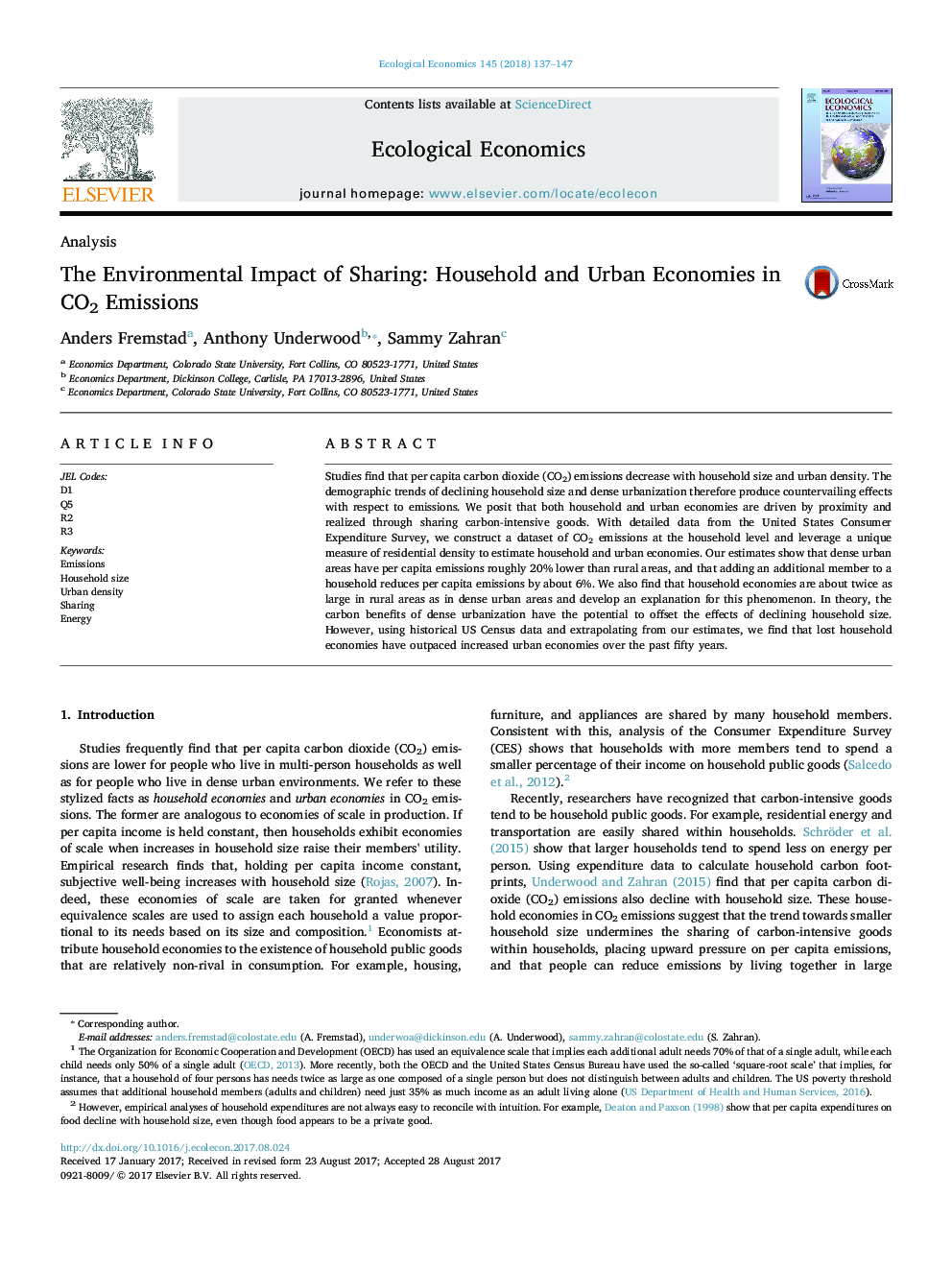| کد مقاله | کد نشریه | سال انتشار | مقاله انگلیسی | نسخه تمام متن |
|---|---|---|---|---|
| 5048600 | 1476334 | 2018 | 11 صفحه PDF | دانلود رایگان |

- Household economies and urban economies in CO2 emissions are significant.
- Both households and cities facilitate the sharing of carbon-intensive goods.
- Household economies are larger in rural areas than in urban areas.
- Shrinking households have offset emission reductions from urbanization.
Studies find that per capita carbon dioxide (CO2) emissions decrease with household size and urban density. The demographic trends of declining household size and dense urbanization therefore produce countervailing effects with respect to emissions. We posit that both household and urban economies are driven by proximity and realized through sharing carbon-intensive goods. With detailed data from the United States Consumer Expenditure Survey, we construct a dataset of CO2 emissions at the household level and leverage a unique measure of residential density to estimate household and urban economies. Our estimates show that dense urban areas have per capita emissions roughly 20% lower than rural areas, and that adding an additional member to a household reduces per capita emissions by about 6%. We also find that household economies are about twice as large in rural areas as in dense urban areas and develop an explanation for this phenomenon. In theory, the carbon benefits of dense urbanization have the potential to offset the effects of declining household size. However, using historical US Census data and extrapolating from our estimates, we find that lost household economies have outpaced increased urban economies over the past fifty years.
Journal: Ecological Economics - Volume 145, March 2018, Pages 137-147